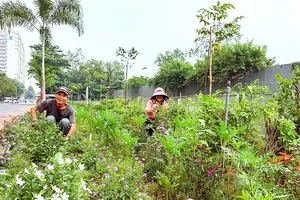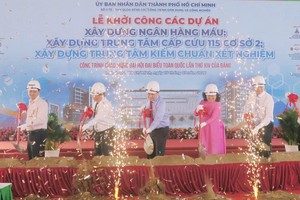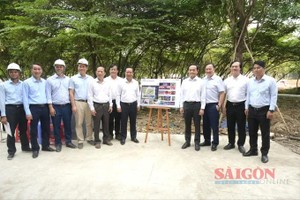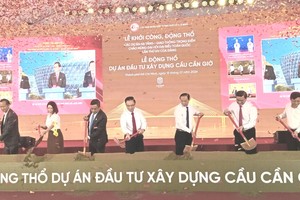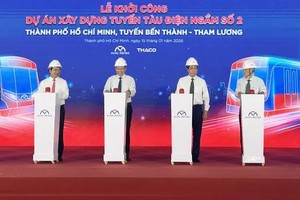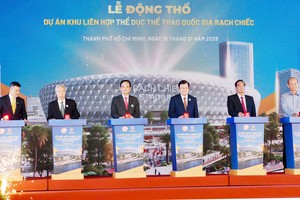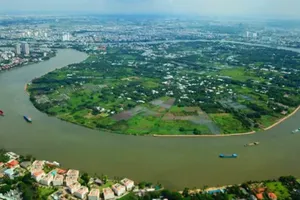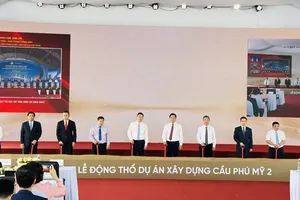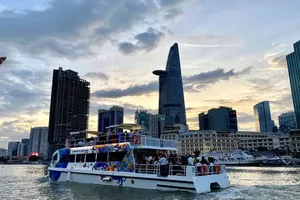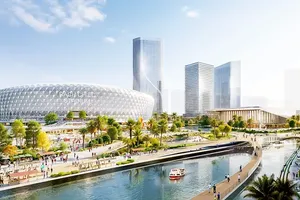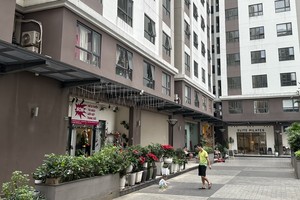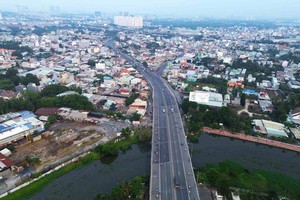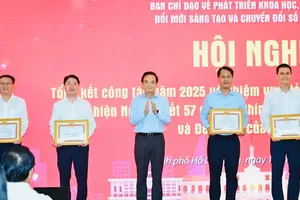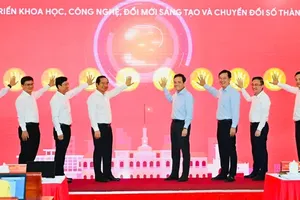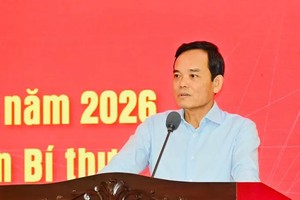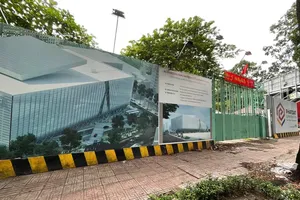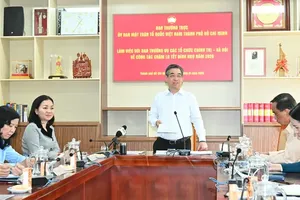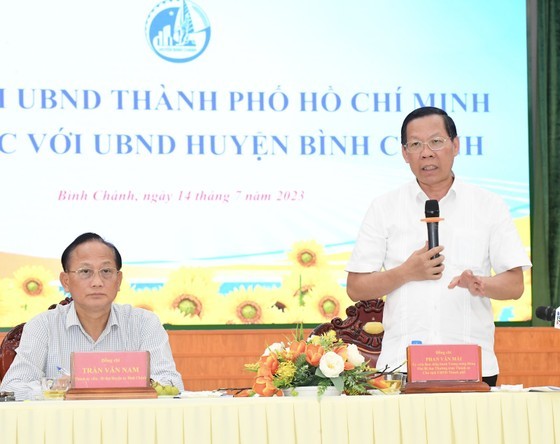 |
Chairman Mai makes his statement at a working session with the People's Committee of Binh Chanh district |
Chairman Mai made his statement at a working session with the People's Committee of Binh Chanh district on the socio-economic situation and the results of the implementation of the district's recommendations under the direction of the Standing People's Committee of Ho Chi Minh City in the first 6 months of 2023. He led a mission delegation to check the district’s socio-economic situation in the first 6 months of 2023.
Previously, Vice Chairman of Binh Chanh District People's Committee Nguyen Van Tai reported the results of the socio-economic situation in the first 6 months of 2023. He also raised some petitions of the district in finance, investment, natural resources and environment, urban management, and organizational apparatus.
Amongst petitions, the district proposed to soon have one more Vice Chairman of the Commune People's Committee according to the Resolution 98. The Resolution 98 states that a district with the population of 50,000 or more will have more vice chairmen. Currently, Binh Chanh district has 4 communes with over 50,000 inhabitants.
The municipal People's Committee Chairman also noted that Binh Chanh district not only depends on the state budget but must actively and dynamically seek social resources to contribute to public investment. The National Assembly's Resolution 98 of has given Ho Chi Minh City as well as Binh Chanh district the green light to implement more mechanisms . He requested transparency in the process avoiding a delay or else the city will miss opportunities to attract investment projects.
For the fast formation of an oriented urban area, the Chairman of Ho Chi Minh City People's Committee emphasized the model of urban development oriented towards transit-oriented development. In urban planning, transit-oriented development is a type of urban development that maximizes the amount of residential, business and leisure space within walking distance of public transport. The Resolution 98 gave the southern largest city the green light to carry out transit-oriented development. Therefore, Binh Chanh district also needs to focus on implementing this form, especially traffic projects in the district.
Talking about district planning, Mr. Phan Van Mai emphasized that planning is very important and especially for Binh Chanh district. He suggested that the district's development direction would be to adjust the administrative bottlenecks to be suitable for the development of satellite cities such as the southern city, the southwestern city, and the northwest city.
According to his suggestion, Can Gio will be an urban area encroaching on the sea, the gateway to Ho Chi Minh City in the East. The southern city with the central core is Phu My Hung urban area.
For industrial zones, Chairman Mai asked Binh Chanh district to consider the transformation of functions towards a low-pollution industry, high-tech industry, and industry with great added value. Moreover, the district should study the formation of new industrial zones in the direction of urban - industry-service complexes.
The district also aims to develop an ecological urban area associated with high-tech agriculture, seed production, processing, agricultural product trading floor, and agricultural product import and export hub. In his opinion, the district’s agriculture is associated with tourism and the district must keep the green space in the city.
As for the auxiliary works for agricultural production, the Chairman of Ho Chi Minh City People's Committee suggested that Binh Chanh district set up a project piloting the construction of agricultural production works and activities in combination with tourism. The pilot project is implemented according to the Politburo’s Conclusion 14 on the policy of encouraging and protecting dynamic and creative civil servants for the city’s and residents’ sake.
